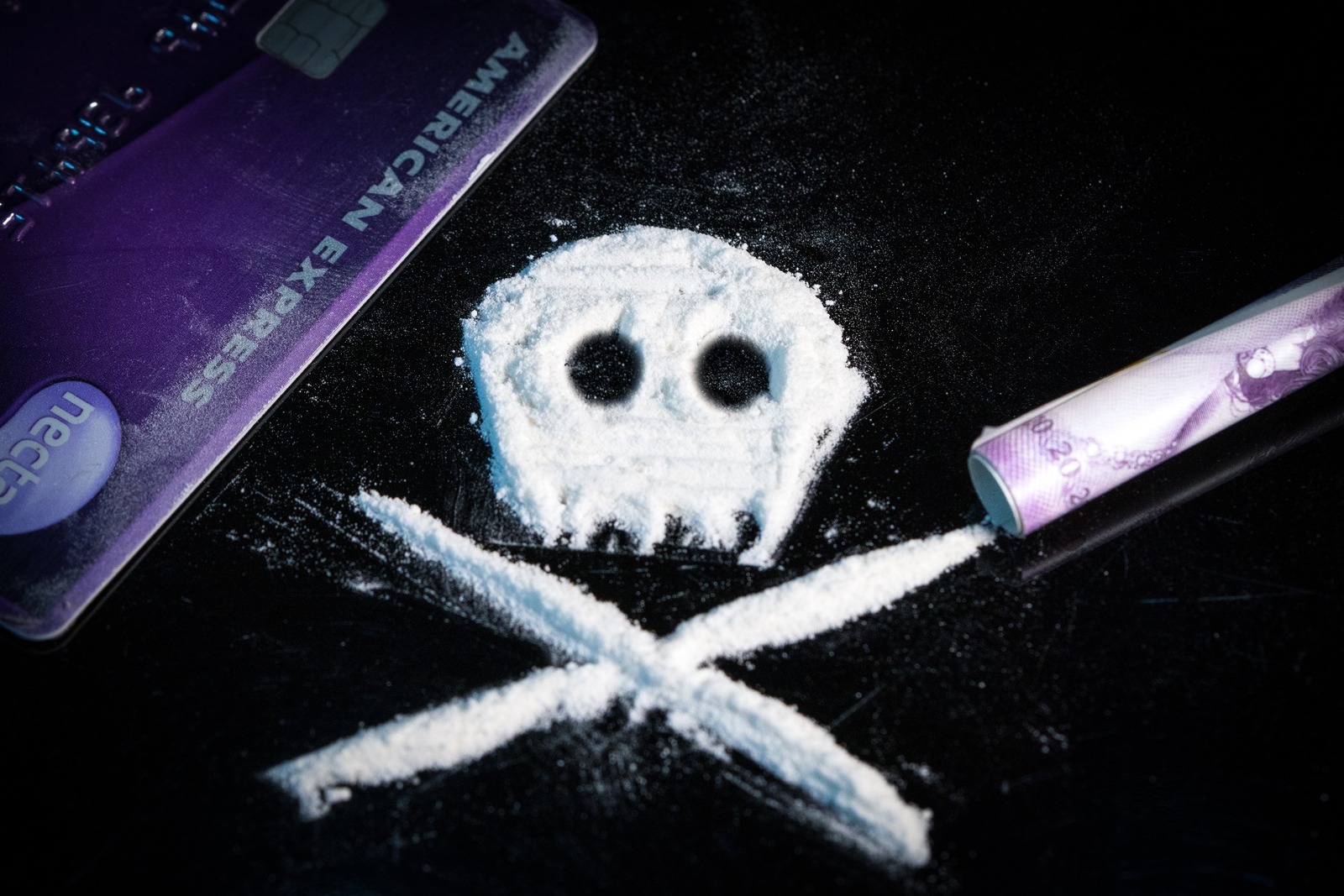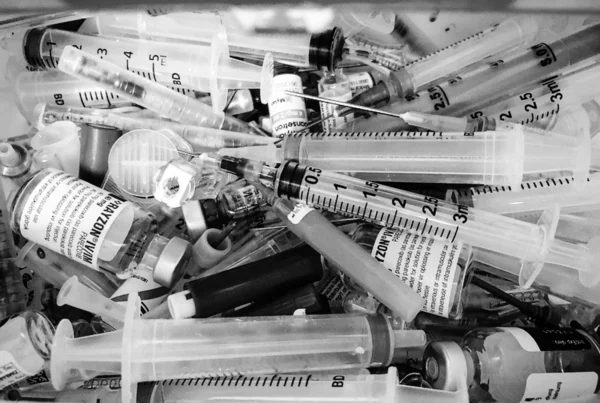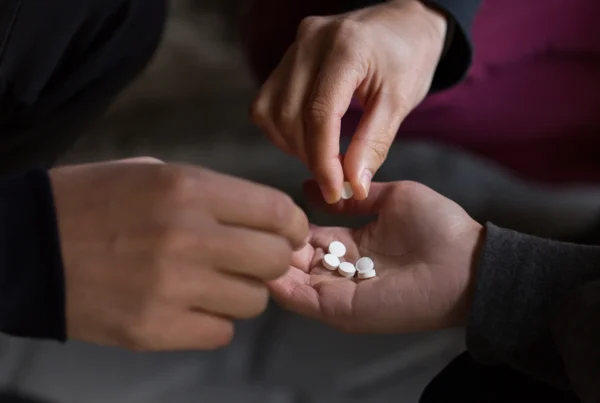
Table of Contents
Cocaine is one of those drugs that has a bad reputation for a reason, but sometimes that reputation can get in the way of the actual facts about the drug.
The truth is, having information about cocaine can sometimes keep us safer than we would be without it. If you or someone you care about is considering using cocaine, it’s important to know how the drug works, how long cocaine will stay in your system, and what to expect while you’re using the drug.
This information isn’t meant to encourage you, but it makes it safer if you do decide to use cocaine, and, hopefully, to give you the information you need to decide not to take the drug in the first place.
In addition to talking about what cocaine actually is and how it works, we’ll also talk about some of the common side effects and risks of cocaine use, whether this stimulant is addictive, and how to get help if you or someone you love is dealing with a drug problem.
What Is Cocaine?
Cocaine is a highly refined version of the stimulants that are naturally found in the coca plant.
While the coca plant is still used as a natural stimulant in some parts of the world, like Machu Pichu, where it can be used to help cope with the high altitude, there aren’t very many medical uses for the refined form of cocaine.
Even the unrefined version can be dangerous, depending on how you use it and whether you’re vulnerable to using other drugs when you use cocaine.
Cocaine is typically available in two forms, a crystal form that’s usually called crack, or a white powder. Cocaine can be ingested with food or drink, injected with a syringe, or snorted. Most cocaine users snort the drug, but that isn’t universal.
Each method of ingesting cocaine has its own risks, though they have similar side effects once the drug kicks in. One of the reasons that snorting is so common with cocaine, despite the fact that snorting cocaine can damage your sinuses, is that it’s one of the fastest ways to get high on the drug.
How Long Does Cocaine Stay In Your System?
Understanding how long cocaine stays in your system is critical if you want to be safe with the drug, especially if you’re also using other drugs simultaneously. That’s important because cocaine is a common party drug, and it’s also fairly common for users to use more than one kind of drugs or alcohol while consuming cocaine.
Mixing drugs is pretty much always more dangerous than taking a single drug at a time, but it’s also important to remember how long drugs are in your system before you take more.
Here’s what you need to know.
How Long Does A Cocaine High Last?
Cocaine is notorious for an intense, but very short-lived high. Most cocaine users only feel the effects of the drug for 15-30 minutes per dose, depending on how much they take, how they take it, and how they metabolize the drug.
Other methods of taking cocaine, besides snorting the drug, may give you a slightly longer lasting high, but they are also usually less intense, and it can be harder to tell when it’s safe to take more of the drug.
That’s a serious problem because cocaine is typically used as a binging drug, where users take several doses in a row every time the drug starts to wear off and leave their system. If you don’t understand when the drug is out of your system, because of extended high or metabolic rate differences between you and the people you’re with, you may be at a greater risk of taking too much of the drug and getting dangerous side effects.
How Long Is Cocaine Detectible?
How long a drug lasts and how long it can be detected in the body are two different things. Typically, cocaine isn’t easy to detect for more than 24-48 hours after use. However, more advanced drug tests can detect cocaine for up to a week, and hair follicle tests can usually show any drug use within the last three months, including cocaine use.
Side Effects And Risks Of Cocaine Use
Like all illegal drugs, there are many reasons cocaine is illegal, including its side effects that aren’t justified by the few legitimate medical uses.
The main reason people take cocaine, the sense of euphoria and high feeling, is technically also side effects of the stimulant since they aren’t intentional or medically valuable side effects.
We aren’t going to cover the high you get from cocaine in much detail, other than to say that cocaine use can lower your inhibitions and make it harder to make decisions the way you normally would. That means that you’re a lot more likely to engage in risky behavior while taking cocaine, especially if you don’t have someone keeping an eye on you and making sure you’re okay while you’re taking the drug.
Here are some of the other common side effects of cocaine use:
- Increased blood pressure
- Higher heart rate
- Weight loss
- Nausea
- Stomach pain
- Tremors
- Vertigo
- Panic attacks
- Aggression
- Irritability
- Anxiety
- Depression
- Tics or repetitive behavior
- Paranoia
- Hallucinations
The psychological side effects of cocaine may also last longer than the high, or many of the other side effects. Depression and anxiety in particular are common after using cocaine and can last several days or even weeks before starting to feel better again.
In some cases, prolonged cocaine use may also lead to higher rates of mental health disorders including depression and anxiety because of changes in your brain’s neurochemistry.
Is Cocaine Addictive?
Cocaine is addictive, but the addiction is a little different from the kind of addiction caused by most other drugs.
For one thing, it’s relatively uncommon for people with cocaine addiction to be able to stay high all the time, which isn’t necessarily true of opioids, meth, or other common street drugs. Instead, people who deal with cocaine addiction generally plan binges, where they use a large amount of drugs at once, rather than trying to keep a continuous supply of the drug.
Some people keep cocaine around all the time, but that’s generally difficult because of the cost and logistics of keeping large quantities around, not to mention the legal consequences or risk of being considered a dealer because of the quantity you have.
Cocaine withdrawal is also a little different, and users typically call it a crash rather than a withdrawal. There are a few reasons for the difference. For one thing, cocaine crashes are usually almost immediate after the high is over, there isn’t a time when the drug is working its way out of your system but you’re still mostly symptom free.
The other reason that cocaine withdrawal is a little different is that most users primarily report psychological side effects during a cocaine crash. However, fatigue and insomnia may also be present. For the most part, users anticipate depression, anxiety, possible aggression, and irritability as the main side effects of a cocaine crash.
The more you use cocaine, or the more cocaine you take in a single binge, the worse the crash afterward is likely to be. That’s another reason cocaine can become addictive. Often, cocaine users who have an extended cocaine crash will seek out more of the drug to relieve the negative feelings leftover from a cocaine crash.
Common Signs Of Addiction
Cocaine addiction looks a lot like other kinds of addiction from the outside, and it can feel a lot like other kinds of addiction on the inside as well. People who are addicted to cocaine may be more likely to have other addictions as well, especially if they start using those other substances to cope with the symptoms of a cocaine crash, or if they started using cocaine as an alternative to those other substances.
If these signs and symptoms sound familiar, even if you don’t use cocaine, it’s possible that you’re dealing with an addiction. If you suspect that you are dealing with an addiction, it’s important to talk with your medical care provider to see if there are options to help.
- Feeling distracted by thinking about cocaine, even when you’re doing other things
- Using cocaine more often than you used to
- Needing a larger dose of cocaine to get the same effects as you used to
- Needing to take cocaine more often to deal with the side effects
- Buying cocaine is causing problems with your budget
- You have or have or have considered stealing to buy cocaine
- You feel like you aren’t yourself when you aren’t using cocaine
- You feel like you need cocaine to perform your best
- You use or have considered using cocaine instead of sleeping
- When you aren’t using cocaine, you’re often planning how to get more
- You feel more and more out of control, either when you use cocaine, when you aren’t using cocaine, or both
- You feel like you need to hide your cocaine use, even, and perhaps especially from people who have previously known about your drug use
- Your drug use, or the behaviors stemming from your drug use, is causing social tension between you and the people you care about
- You’ve missed one or more important events for yourself or someone close to you because of your drug use
There are plenty of other symptoms and signs that you might be dealing with an addiction, but these common signs and symptoms are still some of the best clues.
How To Get Help Overcoming Cocaine Use
If you’re dealing with cocaine addiction it can be hard to know what to do next, even if you want to overcome your addiction and reclaim your life.
There are probably more options and support systems out there than you would expect, but it’s important to ensure you find a good match and a system that will offer top quality support if you’re dealing with an addiction.
One of the best ways to overcome cocaine addiction, and to make sure you have the support you need to get through the cocaine crash, is to go to a residential treatment center where you can access therapy and have 24-7 support.
If you think that a residential treatment center might be the right option for you, contact Ocean Recovery. Our top tier team is here and ready to help you.
Sources:
- Brain PF, Coward GA. A review of the history, actions, and legitimate uses of cocaine. J Subst Abuse. 1989;1(4):431-451.
- Villines Z. 4 Possible Signs of Nose Damage From Coke Use. WebMD. Accessed February 20, 2023. https://www.webmd.com/connect-to-care/addiction-treatment-recovery/prescription/possible-signs-of-nose-damage-from-coke-use
- National Institute on Drug Abuse. What are the short-term effects of cocaine use? National Institute on Drug Abuse. Published May 2016. Accessed February 20, 2023. https://nida.nih.gov/publications/research-reports/cocaine/what-are-short-term-effects-cocaine-use
- T B. Cocaine: Everything You’ve Been Afraid to Ask. Verywell Mind. Published June 20, 2021. Accessed February 20, 2023. https://www.verywellmind.com/signs-of-cocaine-use-addiction-5525536
OCEAN RECOVERY EDITORIAL GUIDELINES
The internet contains a vast amount of misinformation, but when it comes to your health only peer reviewed, research centered data matters. At Ocean Recovery, all content published throughout our website has been rigorously medically reviewed by a doctorate level clinician, and cross checked for medical accuracy. Our editorial process helps our readers trust that the information they are consuming is factual and based upon scientific data. Your health is our top priority, find out more about how we safeguard the integrity of information on our website. Read More About Our Process






